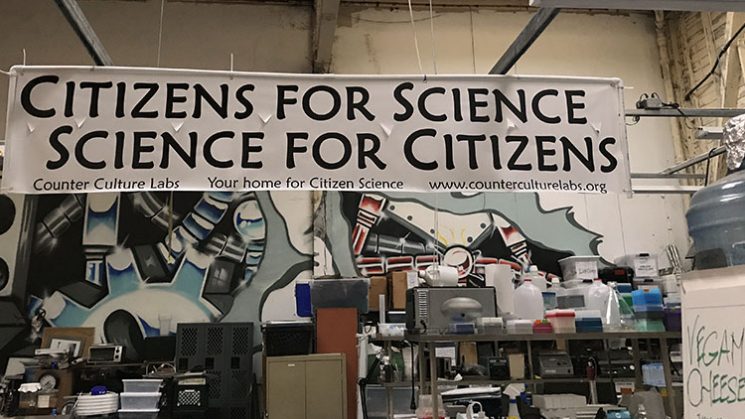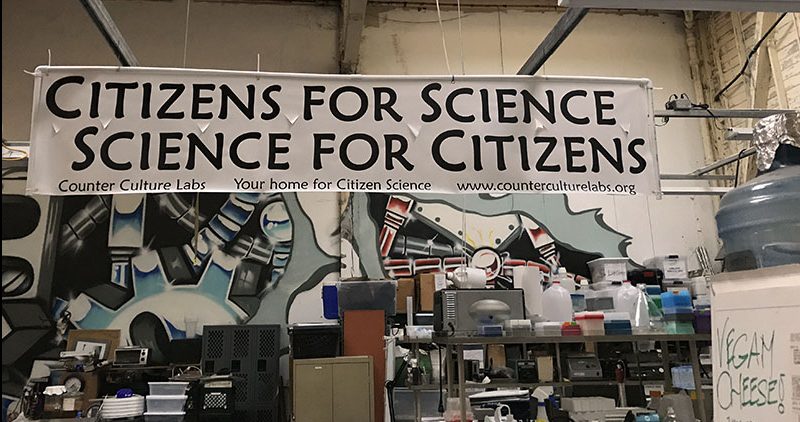

From Todd Kuiken’s visit to DIYbio Counter Culture Labs in San Francisco in August, 2017.
Open Philanthropy Project awards Genspace and NC State University $700,000 to support biosafety and biosecurity practices for the DIYbio community
FOR IMMEDIATE RELEASE
NEW YORK, September 22, 2017 — The Open Philanthropy Project awarded two grants totaling $706,750 to Genspace and North Carolina State University to evaluate and support the creation of biosafety and biosecurity practices around Do-It-Yourself Biology (DIYbio).
Over the last five years, DIYbio – also known as the community lab movement – has grown significantly in both membership and technical sophistication. The project seeks to identify and develop common sets of practices to ensure the safe and secure development of labs in the community.
The grant includes $454,025 to Daniel Grushkin, Executive Director of Genspace, and $252,725 to Todd Kuiken, Ph.D., senior research scholar the Genetic Engineering and Society Center at NC State University.
“For the last six years, Todd and I have been exploring the best ways to ensure the healthy growth of community labs as safe and secure resources for public education and biotech innovation,” says Grushkin. “This grant will help us codify best practices in these often unconventional spaces.”
The project includes two parts: a comprehensive tour of DIYbio labs followed by a biosafety fellowship that places early career biosafety officers in these labs to work for a year and develop biosafety procedures and biosecurity provisions in the DIY lab context. The goal is to improve safety and security standards in the participating labs and to establish biosafety and biosecurity experts with a specialization in DIY labs. Researchers expect the fellowship to begin in September 2018.
CONTACTS:
| Anna Sagatov Community Manager, Genspace asagatov@genspace.org @genspacenyc |
Patti Mulligan Communications Director, GES Center patti_mulligan@ncsu.edu @GESCenterNCSU |
|---|
About Open Philanthropy Project
The Open Philanthropy Project identifies outstanding giving opportunities, makes grants, follows the results, and publishes its findings. Its main funders are Cari Tuna and Dustin Moskovitz, a co-founder of Facebook and Asana.
About Genspace
Genspace is the world’s first community biology lab—a public facility where students and adults can learn, innovate, and explore using the latest scientific tools.
Since 2009, Genspace has promoted science literacy, entrepreneurship, and public conversation about the implications of biotechnology through hands-on research.
About the Genetic Engineering and Society (GES) Center at NC State University
GES Center is shaping the futures of biotechnology by integrating scientific knowledge and public values. GES faculty engage in interdisciplinary research, analysis and inclusive dialogue, blending approaches from biological and social sciences to study the intersection of genetic engineering and society.